Iron Wall is a film of genre Documentary
Iron Wall (2007)

If you like this film, let us know!
- Infos
- Casting
- Technical infos
- Photos
- Videos
- Film quotes
- Characters
- Music
- Awards
Length 52minutes
Genres Documentary
The Iron Wall is a 2006 documentary film about the establishment of Israeli settlements in the West Bank, which, the film argues, is a strategy for permanent occupation of the territory. Produced by the Palestinian Agricultural Relief Committees and Palestinians for Peace and Democracy, it was the "Official Selection" of the Al-Jazeera Television Production Festival.
The Iron Wall follows the timeline of the settlements and examines their effect on the peace process, featuring interviews with noted peace activists and political analysts, both Israeli and Palestinian, including Jeff Halper, Akiva Eldar and Hind Khoury. The film also covers the controversial construction of the Israeli West Bank barrier.
The Iron Wall features English, Arabic and Hebrew, and has English subtitles. It is named after an essay of the same name.
Comments
Leave comment :
Suggestions of similar film to Iron Wall
There are 8975 with the same cinematographic genres, 11701 films with the same themes (including 63 films with the same 9 themes than Iron Wall), to have finally 70 suggestions of similar films.If you liked Iron Wall, you will probably like those similar films :
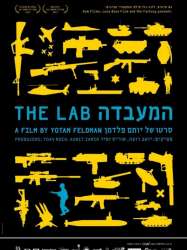
The Lab (2013)
Genres Documentary, Historical
Themes Films set in Africa, Films about religion, Documentary films about law, Documentary films about war, Documentary films about historical events, Documentary films about politics, Documentary films about religion, Political films, Films about Jews and Judaism
Rating71%






To Die in Jerusalem (2007)
, 1h15Origin Israel
Genres Documentary
Themes Films set in Africa, Films about religion, Documentary films about law, Documentary films about war, Documentary films about historical events, Documentaire sur une personnalité, Documentary films about politics, Documentary films about religion, Political films, Films about Jews and Judaism
Rating69%





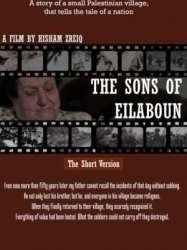
The Sons of Eilaboun (2007)
, 24minutesDirected by Hisham Zreiq
Origin Israel
Genres Documentary
Themes Films set in Africa, Films about religion, Documentary films about law, Documentary films about war, Documentary films about historical events, Documentaire sur une personnalité, Documentary films about politics, Documentary films about religion, Political films, Films about Jews and Judaism
Rating68%





The film starts with Melia Zreiq, an old woman from Eilaboun, saying: "I hope God will bring peace to this land, and let the peoples live together - a good life. I hope there will be peace". Historian Ilan Pappe talks about Plan Dalet, a plan that David Ben-Gurion and the Haganah leaders in Palestine worked out during autumn 1947 to spring 1948. Pappe discusses the details of the plan, and how was it carried out. On October 30, 1948, the Israeli army entered Eilaboun at approximately 5 AM. They then forced the villagers together in the main square of the village. They chose seventeen young men. Five of them were taken as human shield, and the rest of the twelve were killed, each in a different location. This all happened after the expulsion of the rest of the village to Lebanon, where they became refugees after a five days forced march to Lebanon. After a United Nations peace keeper observed and reported Israel was forced to allow the people back.
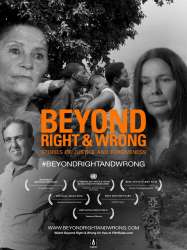 , 1h20
, 1h20Directed by Roger Spottiswoode
Origin USA
Genres Documentary
Themes Films set in Africa, Films about racism, Films about religion, Films about terrorism, Documentary films about racism, Documentary films about law, Documentary films about war, Documentary films about historical events, Documentaire sur une personnalité, Documentary films about politics, Documentary films about religion, Political films, Films about Jews and Judaism
Rating71%





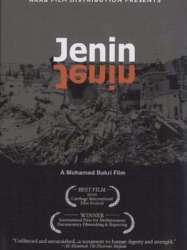
Jenin, Jenin (2003)
, 54minutesDirected by Mohammad Bakri
Genres Documentary
Themes Films set in Africa, Films about religion, Documentary films about law, Documentary films about war, Documentary films about historical events, Documentaire sur une personnalité, Documentary films about politics, Documentary films about religion, Political films, Films about Jews and Judaism
Rating73%





Jenin, Jenin est un documentaire sur ce qu'il se serait passé lors de la bataille de Jenine, dans le cadre de l'opération Rempart, dans le village de Jénine en territoire palestinien, impliquant Tsahal (l'armée israélienne) en 2002 (en réaction à une série d'attentats dont celui du 27 mars 2002 à l'hôtel Park de Netanya), où le cinéaste laisse la parole aux habitants de la ville.
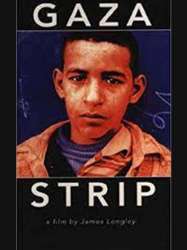
Gaza Strip (2002)
Directed by James Longley
Origin USA
Genres Documentary
Themes Films set in Africa, Films about religion, Documentary films about law, Documentary films about war, Documentary films about historical events, Documentaire sur une personnalité, Documentary films about politics, Documentary films about religion, Political films, Films about Jews and Judaism
Rating71%






Close, Closed, Closure (2003)
, 53minutesDirected by Ram Loevy
Genres Documentary
Themes Films set in Africa, Films about religion, Documentary films about law, Documentary films about war, Documentary films about historical events, Documentaire sur une personnalité, Documentary films about politics, Documentary films about religion, Political films, Films about Jews and Judaism
Rating63%






Channels of Rage (2003)
Origin Israel
Genres Documentary
Themes Films set in Africa, Films about music and musicians, Films about religion, Documentary films about law, Documentary films about war, Documentary films about historical events, Documentary films about music and musicians, Documentaire sur une personnalité, Documentary films about politics, Documentary films about religion, Hip hop films, Musical films, Political films, Films about Jews and Judaism
Rating68%





The film focuses on two young rap artists, Subliminal, an Israeli Jew, and Tamer Nafar, a Palestinian citizen of Israel, and focuses on their music, friendship, and their politicization as public figures. The film traces the relationship between Tamer and Subliminal, as the events of the Second Intifada unfold, and lets the viewer draw conclusions from the souring relations between the two as an individual representation of the polarization process which took place during these years of bloody conflict. In this aspect, the film succeeds in delivering the atmosphere of the loss of hopes for peace after the failure of the Camp David summit between Ehud Barak and Yasser Arafat and the renewed intensity of the conflict since. The film was featured in the San Francisco Jewish Film Festival.
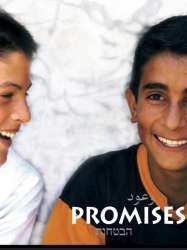
Promises (2001)
, 1h46Directed by Justine Shapiro, Carlos Bolado
Origin USA
Genres Documentary
Themes Films set in Africa, Films about children, Films about religion, Documentary films about law, Documentary films about war, Documentary films about historical events, Documentaire sur une personnalité, Documentary films about politics, Documentary films about religion, Political films, Films about Jews and Judaism
Rating82%





Ce film documentaire donne la parole à sept enfants juifs et palestiniens, âgés entre 9 et 13 ans. Ils donnent leur vision sur le conflit israélo-palestinien.

Persona Non Grata (2003)
, 1h7Directed by Oliver Stone
Origin USA
Genres Documentary
Themes Films set in Africa, Politique, Films about religion, Documentary films about law, Documentary films about war, Documentary films about historical events, Documentaire sur une personnalité, Documentary films about politics, Documentary films about religion, Political films, Films about Jews and Judaism
Actors Oliver Stone
Rating63%





Film documentaire de 2003 produit par Oliver Stone pour la série HBO America Undercover sur le conflit en Palestine occupée. Il s' entretiens avec Ehud Barak et Benjamin Netanyahu, anciens Premiers ministres d'Israël, Yasser Arafat, défunt président de l'Autorité nationale palestinienne, et divers militants palestiniens qui résistent à l'oppression du régime sioniste.
 Connection
Connection